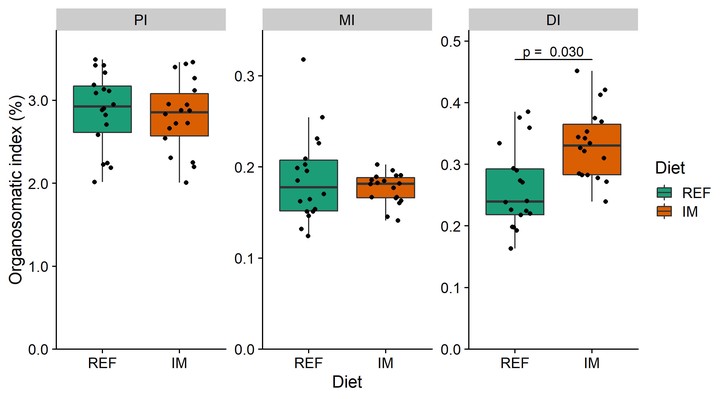Total replacement of fish meal with black soldier fly (Hermetia illucens) larvae meal does not compromise the gut health of Atlantic salmon (Salmo salar)

Abstract
Limited availability of sustainable feed ingredients is a significant concern in salmon aquaculture. Insects may become an important, sustainable resource for expanding the raw material repertoire. Herein, we present data from a 16-week seawater feeding trial with Atlantic salmon (initial body weight, 1.4 kg) fed either a reference diet with a combination of fish meal, soy protein concentrate, pea protein concentrate, corn gluten and wheat gluten as protein source, or a test diet wherein all the fish meal and most of the pea protein concentrate were replaced by black soldier fly larvae meal. The gut health of fish was evaluated using endpoints including organ and tissue indices, histopathology variables and gene expression indicative of lipid metabolism, immune responses, barrier functions and detoxification/stress responses. A higher relative weight of distal intestine was found in fish fed the insect meal diet. Steatosis of enterocytes was observed in the proximal and mid intestine in both diet groups, albeit, less severe in the proximal intestine of fish fed the insect meal diet. Inflammatory morphological changes, similar to those induced in the distal intestine by standard soybean meal, were present in all the examined intestinal segments, with a higher degree of submucosa cellularity in the proximal intestine of insect meal diet fed fish, the only notable diet effect. Few differentially expressed genes were identified in the proximal or distal intestine. In summary, total replacement of fish meal with black soldier fly larvae meal did not compromise the gut health of Atlantic salmon.